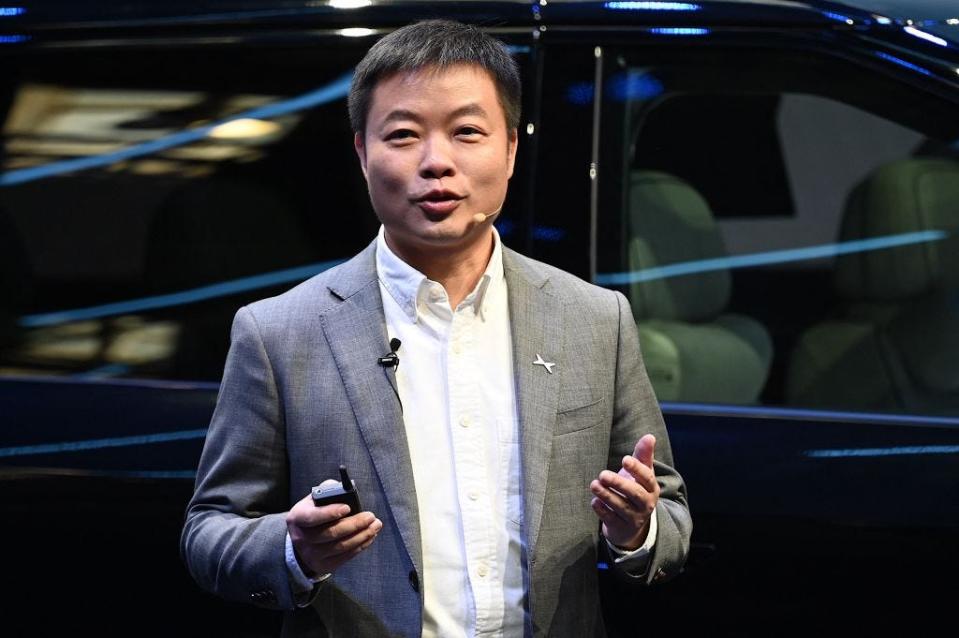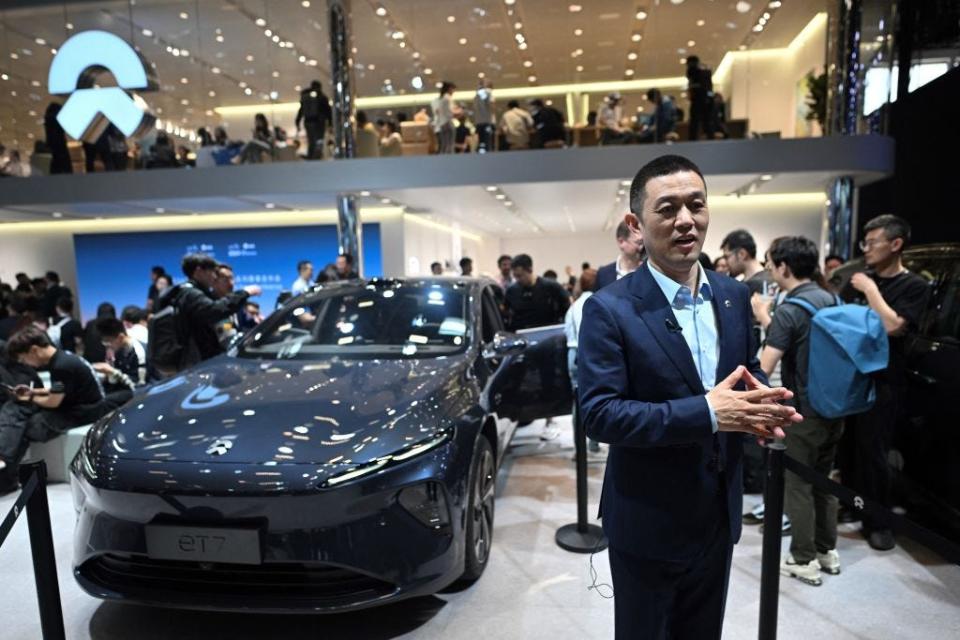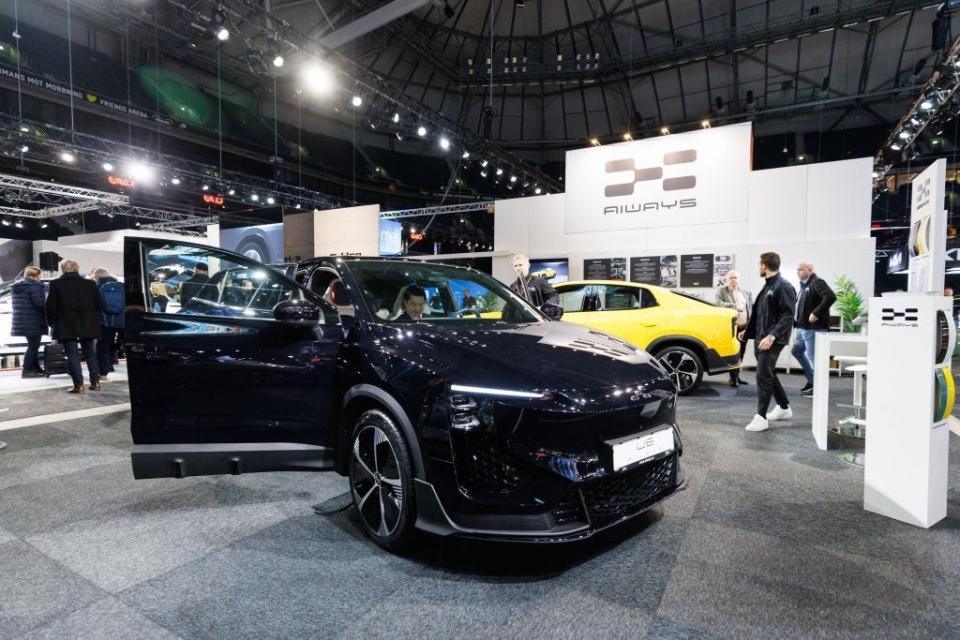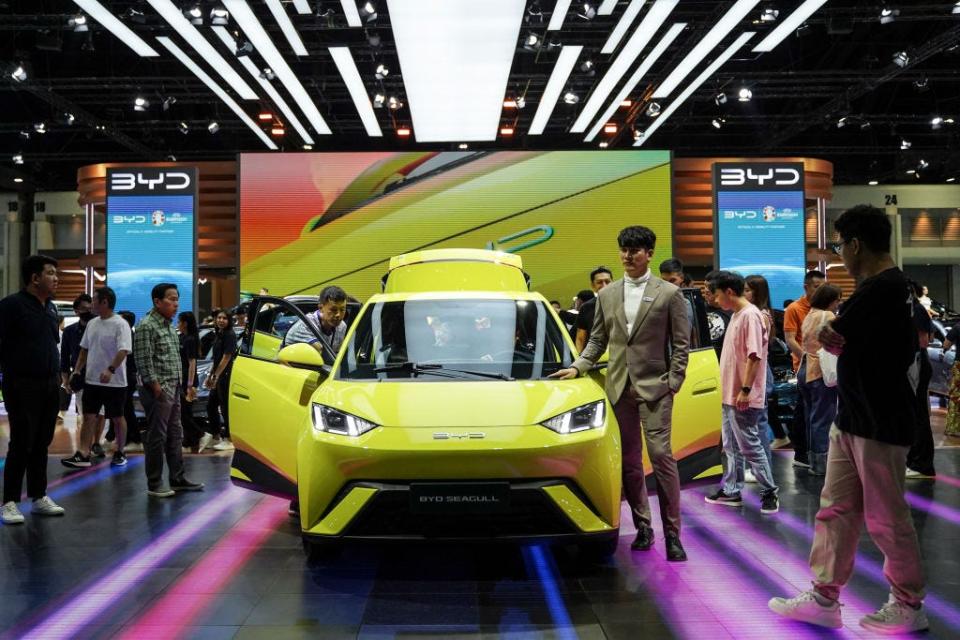China's EV market could soon face a brutal reckoning
China's EV industry is booming — but it could be about to face a painful reckoning.
Price wars and slowing demand are putting Chinese EV players under pressure.
Execs are warning that 2024 will be a "knockout round," with some firms pushed to the brink.
China's EV industry has boomed over the last few years — but it could soon face a painful reckoning.
The International Energy Agency wrote in a recent report that despite EV adoption in China being expected to grow to 45% this year, there are still "far more EV companies in China than can possibly survive in a competitive market."
"In 2014 alone, ten years ago, over 80,000 companies registered in China entered the electromobility sector. In 2023, over 80% of electric car sales in China were concentrated in just over 30 companies," it read.
China's EV market is known for being brutally competitive, with around 123 companies jockeying for customers. Executives and experts are warning that the number of players will likely shrink in the coming years, with economic headwinds piling the pressure on electric vehicle manufacturers.
The IEA report concludes that China's EV market will likely coalesce around a handful of "robust champions."
Some Chinese EV CEOs have echoed that sentiment, and are steeling themselves for what Xpeng boss He Xiaopeng described as a "knockout round" that could end in a "bloodbath" with prices continuing to drop even as growth slows.
"It is not correct for a startup firm to chase idealism," said William Li, CEO of Tesla rival Nio said at a media briefing in December, per The South China Morning Post.
"Nio, as an EV business, has to face the grim reality and try to dodge the bullet as market competition intensifies," he added.

Consolidation looming
This pessimism is rooted in expectations that the rapid pace of EV adoption in China will slow this year, as the Chinese economy struggles with rampant deflation and an ongoing property crisis.
According to China's Passenger Car Association, sales of new energy vehicles are expected to rise by 25% in 2024, down from 36% the year before.
Two of China's biggest automakers, BYD and Li Auto, both recently reported mixed first-quarter earnings. BYD sold 300,000 battery EVs in the first three months of the year, a drop from a record 526,000 in the previous quarter.
Li Auto, meanwhile, saw vehicle sales and net income fall short of analyst targets and cut delivery targets for its new battery-electric van after it failed to sell as well as expected.
Slowing demand has sparked a brutal price war initiated by Elon Musk's Tesla. The automaker started cutting the prices of some of its Chinese models in 2022 and has continued since then, forcing local rivals to retaliate and slash their own prices to keep up.
It has also led to fears of overcapacity, with healthy subsidies for the EV industry leading to a glut of new factories being built over the past few years.
Many of them now sit empty, with China's National Bureau of Statistics estimating that capacity utilization across the auto industry was at 65% in the first three months of this year, down from 75% in 2023 and 80%-plus before the Covid-19 pandemic, according to The New York Times.
This has put increasing financial pressure on China's EV makers, many of whom have accumulated losses as they have rapidly scaled up their businesses.

Nio, for example, has never turned a profit and reported a $2.9 billion loss last year. Rival Xpeng posted a narrower-than-expected net loss of 1.41 billion yuan ($195 million) for the first three months of 2024, delivering 21,821 vehicles.
Regulators have issued their own warnings. Xin Guobin, vice minister of industry and information technology, cautioned against expansion in the face of "insufficient" consumer demand for EVs and said Beijing would take "forceful measures" to address "blind" construction of new EV projects.
"There are a lot of EV companies in China. The average volume per brand is very low, not sustainable, and so there will be eventual consolidation," Stephen Dyer, head of Asia auto and industrials consulting at Alixpartners, told Business Insider.
Dyer said consolidation would likely be a protracted process, with investors and local governments reluctant to let EV companies die.
But he added that only "a handful" of Chinese firms are likely making a profit on their EV business, meaning a crunch is inevitable.
"Among the little over 120 EV brands that are selling EVs in China, we think about 20 to 30 will probably be financially viable in the long term," he added.
The red ocean
There are signs this thinning of the herd has already begun.
Several smaller Chinese EV makers have run into financial difficulties in recent months, with Shanghai-based WM Motor filing for pre-restructuring last October and the company behind the premium EV brand HiPhi suspending production in February for at least six months.

Tencent-backed Aiways, meanwhile, is reportedly moving its operations from China to Germany, with sources familiar with the matter telling Autocar the move was due to intense competition and pricing pressure back home.
EV parts suppliers are also feeling the squeeze as car makers take longer to pay the bills.
Bloomberg reported this month that both Nio and Xpeng are taking longer to clear their receipts payable — something Alvarez & Marsal consultant Lin Zhu warned was pushing smaller suppliers to the brink.
"We've seen more car components producers approaching us to improve their performance and some of them are thinking about offloading unprofitable businesses," Zhu told Bloomberg.
"The weak ones in the supply chain will face a high risk of being kicked out of the game," she added.
The pain is even more severe for foreign automakers, who have seen their position in China gradually decline in favor of local manufacturers.
"It is a matter of existing at the moment. It's becoming more and more difficult for European manufacturers in China," Linda Jackson, CEO of French brand Peugeot, told the Financial Times Future of the Car Summit. Peugeot did not respond to BI"s request for comment on whether it is currently selling EVs in China.
"To be there, you either enter into what I would call the red ocean (of losses), or you stand back, reduce your volume and wait to see where the market goes," she said.
"There will be consolidation, even in the Chinese market … a large majority of Chinese electric vehicle startups are not making any money," Jackson added.
A fight to survive

Paul Li, the CEO of China-based EV tech firm U-Power, told BI that Chinese EV companies needed to change their business models to become profitable and avoid extinction.
This means developing vehicles with an "EV methodology," he said, by prioritizing intelligent vehicles and new features rather than simply converting combustion engine vehicles into electric models.
He also said they needed to find new ways to profit from their vehicles after the initial purchase, as EVs require less maintenance and fewer part replacements than gasoline vehicles.
"The carmakers can find a lot of new ways to make a profit rather than just selling the car," Li said.
"Batteries can become a service, charging can become a service, finance, insurance, and autonomous driving can all become a service," he added.
Ultimately, the biggest challenge Chinese EV makers face is differentiating themselves from the hundred-plus other companies fighting for customers — and until they do, the price war will likely continue, Stephen Dyer of AlixPartners told BI.
"Most of the companies are not clearly differentiated. And if your product is not differentiated, it is going to end in a price war," he added.
Read the original article on Business Insider

 Yahoo News
Yahoo News 
